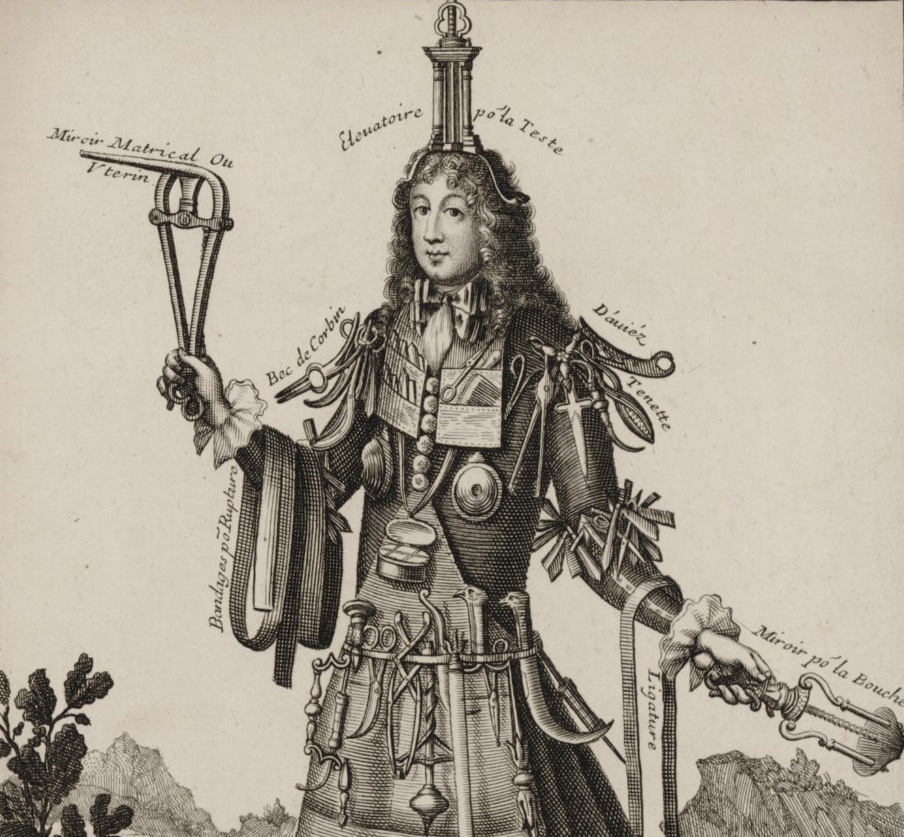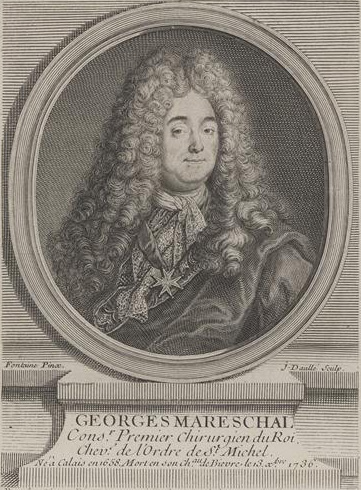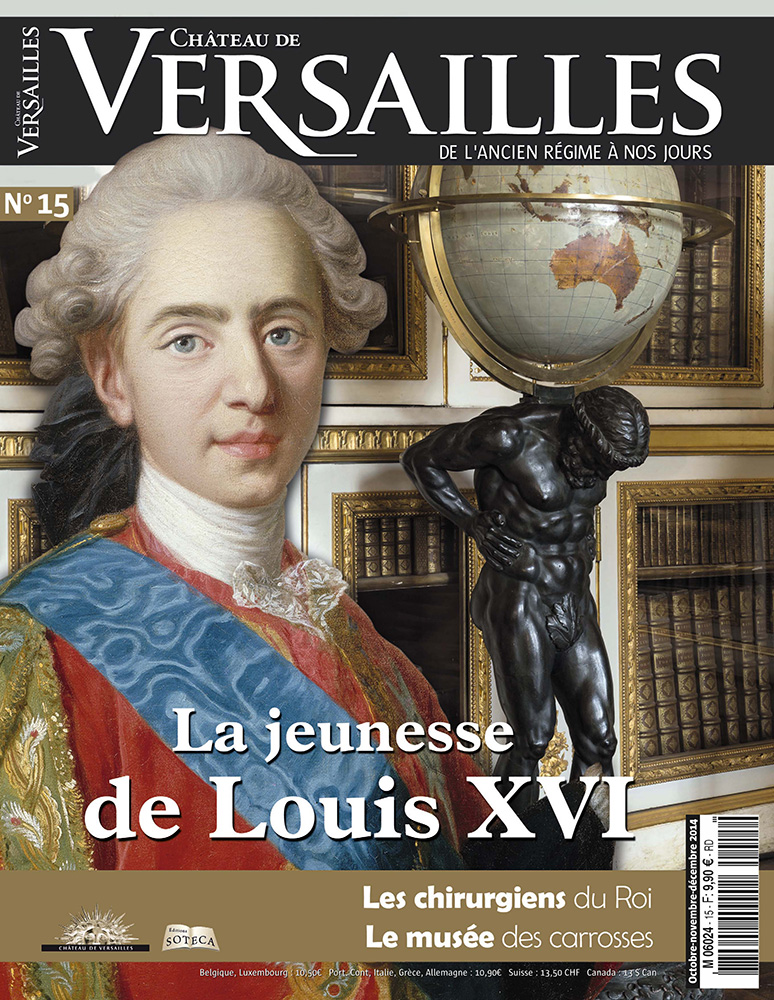Georges Mareschal, King's surgeon

Georges was a gentleman with Irish origins on his father’s side and who had fought in the service of Louis XIII. When he was summoned to the Sun King’s bedside by Félix, he was already Head Surgeon at the Hôpital de la Charité – after having been accepted as Master of Surgery four years earlier at the age of 30. At the time he was already known for the ‘waist operation’ which consisted in cutting opening the bladder to swiftly extract the stones within causing pain, difficulty urinating and urine infections. He was so deft that one day he carried out eight operations in a little over / in a little more than half an hour!
 It was thanks to this reputation and his extreme skill that Louis XIV called Mareschal for his anthrax. A large cross-shaped incision brought a flow of pus spurting out of the royal neck, and the king quickly healed. Consequently, having obtained the King’s trust and Félix’s friendship, Mareschal forged various friendships within the Court, such as with Boileau and Racine, and operated on Bossuet, the Princess of Soubise and the Marquise de Châtillon. He was frequently consulted by foreign royalty such as the King of Sardinia and the Queen of England, as well as Madame de Montespan and many others besides. The King’s confidence in Mareschal grew further still when, in 1698, he cured the Maréchal de Villeroy of an ‘organ descent’ down to his noble testicles.
It was thanks to this reputation and his extreme skill that Louis XIV called Mareschal for his anthrax. A large cross-shaped incision brought a flow of pus spurting out of the royal neck, and the king quickly healed. Consequently, having obtained the King’s trust and Félix’s friendship, Mareschal forged various friendships within the Court, such as with Boileau and Racine, and operated on Bossuet, the Princess of Soubise and the Marquise de Châtillon. He was frequently consulted by foreign royalty such as the King of Sardinia and the Queen of England, as well as Madame de Montespan and many others besides. The King’s confidence in Mareschal grew further still when, in 1698, he cured the Maréchal de Villeroy of an ‘organ descent’ down to his noble testicles.
Henceforth, his coat of arms featured in the Armorial of France and after the death of Félix he was naturally First Surgeon to the Kingdom on June 14 1703, roundly applauded by the entire Court.
In a little over 25 years the trainee surgeon had become an important figure. And the same year, he earned the gratitude of Fagon, his alter ego as First Doctor, after successfully operating on him ‘on the waist’.
According to Saint-Simon it was Fagon, helped by Madame de Maintenon, who encouraged his promotion. He became a confidant of the king and, naturally, he was part of the sovereign’s daily life. He accompanied him everywhere, notably on hunting expeditions: just in case… He put back – reputedly with “unrivalled skill” – the Duke de Berry’s dislocated shoulder after he fell from his horse in 1704.
Lastly, when the king’s health declined in 1715, he once again took a stance against Fagon and Madame de Maintenon, who underestimated the king’s condition. Fagon thought it was sciatica, but Mareschal realised very quickly that the King was dying. He couldn’t do nothing against the terrible, fast-progressing gangrene attacking his left leg.
Mareschal mentioned the possibility of amputation. The King was willing, saying “Mareschal, do you not have razors there? Cut it off! Don’t be afraid!” and then asking “Will I survive?” To which Mareschal replied with a sigh, “It seems highly unlikely.”
 By Ronal Virag, Surgeon, member of the National Academy of Surgery, extract from the article Les chirurgiens du roi, Magazine du château de Versailles, de l'Ancien Régime à nos jours (Octobre, novembre, décembre 2014).
By Ronal Virag, Surgeon, member of the National Academy of Surgery, extract from the article Les chirurgiens du roi, Magazine du château de Versailles, de l'Ancien Régime à nos jours (Octobre, novembre, décembre 2014).






















